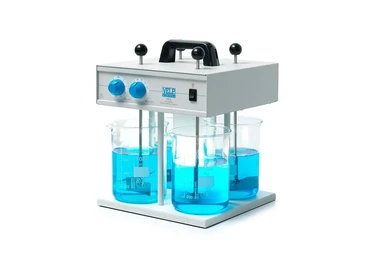Test to determine the effectiveness of scale inhibitors (antiscalants)
The antiscalant inhibition ability test is designed based on international NACE and ASTM standards to quantitatively and qualitatively examine the effectiveness of scale inhibitors, including antiscalants, and shows the percentage of prevention of sedimentation of sediment-forming salts in the presence of the inhibitor.
It should be noted that this method is used for the initial evaluation of sediment inhibitors.
In general, this method uses a comparison of the effectiveness of scale inhibitors under specific laboratory conditions to determine the effectiveness of a specific inhibitor in preventing the formation of calcium sulfate and calcium carbonate deposits in the solution.
Purpose of this test:
- To examine the effectiveness of the scale inhibitor (antiscalant)
- Comparing the performance of different anti-scalant samples with each other quantitatively and qualitatively
- To determine the optimal dose of the scale inhibitor (antiscalant) in the system
- Investigating the effect of scale inhibitor (anti-scalant) in preventing the formation of calcium sulfate deposits
- Investigating the effect of scale inhibitor (anti-scalant) in preventing the formation of calcium carbonate deposits
- Determining the percentage of inhibition of scale inhibitor (anti-scalant) in preventing the formation of calcium sulfate deposits
- Determining the percentage of inhibition of scale inhibitor (anti-scalant) in preventing the formation of calcium carbonate deposits
Abrizan Industrial Research Company, by employing experts and advanced devices in its dedicated laboratory, has provided the conditions for performing the above analyses according to international standards.
The company's laboratory is one of the few laboratories in Iran with such an ability to perform complete analysis of scale inhibitors (anti-scalant).


